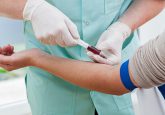Report calls for better evidentiary standards in application of biomarker tests

A recent report written by the Institute of Medicine (DC, USA) highlights the lack of evidentiary standards restricting the clinical use of biomarker tests for molecular targeted therapies.
The report made available online by The National Academies Press scrutinizes current practices in biomarker tests and makes recommendations to advance the use of biomarker tests in the evolving field of precision medicine, and thus enhance patient care and clinical outcomes.
The report’s committee, consisting of senior researchers from diverse medical backgrounds, propose a ‘rapid learning system’ endorsing the development, effective and ongoing assessment, and appropriate use of biomarker tests for molecularly targeted therapies. The scheme would incorporate research on biomarker tests and associated treatments with clinical practice.
Examining opportunities for and challenges to the use of biomarker tests in selecting the best available therapy for patients; the report offers ten key recommendations to advance development in the clinical use of biomarker tests.
Biomarker tests have helped personalize effective treatment to a patient’s disease by identifying molecular variations specific to the individual. Research studies have led to many biomarker tests and associated therapies approved for clinical use in treating various diseases including cancer.
However the suitable adoption and wider implementation of biomarker tests in clinical practice is restricted by lack of evidentiary standards, incompetent regulatory and reimbursement methods, constraints in data collection and analysis, and subsequent translation of these data in clinical practice.
The chair of the report committee, Harold L Moses (Vanderbilt University, TN, USA), stated “Our report lays out a strategy to ensure that the patients have access to effective tests and treatments that are based on solid evidence of their ability to improve health outcomes.”
The committee’s recommendations are focused on accomplishing the ten recommendations set to enhance the development and effective use of biomarker tests for molecular targeted therapies. Presenting the recommendations as integrated parts of the ‘rapid learning system’, the committee acknowledged three focal areas to enable progress: to create a supportive policy environment, support data infrastructure and implement processes to improve patient care.
The report emphasized on developing common evidentiary standards that will inform clinical practice and care. It also called for collaboration between the US FDA for Medicare & Medicaid Services to coordinate regulatory and reimbursement decision-making practices.
The committee recognized the current regulatory oversight of laboratories as being insufficient for increasingly complex biomarker tests and thus emphasized the need to enhance laboratory insight.
The document also stressed the requirement for a national data repository to help both healthcare providers and patients make evidence-based decisions about tests and treatments. Furthermore, unprejudiced access to biomarker tests and associated therapies for all patients was also called for.
Commenting on the supportive framework of the rapid learning system in developing stronger evidence for the use of biomarker tests in a clinical context, Moses emphasized it as “critical to realizing the full potential of precision medicine.”
Sources: Better Evidence, Oversight Needed to Improve Effectiveness and Availability of Biomarker Tests for Molecularly Targeted Therapies, Says New Report; National Academies of Sciences, Engineering, and Medicine. 2016. Biomarker tests for molecularly targeted therapies: Key to unlocking prevision medicine. Washington, DC: The National Academies Press. Doi:10.17226/21860 (2016).






